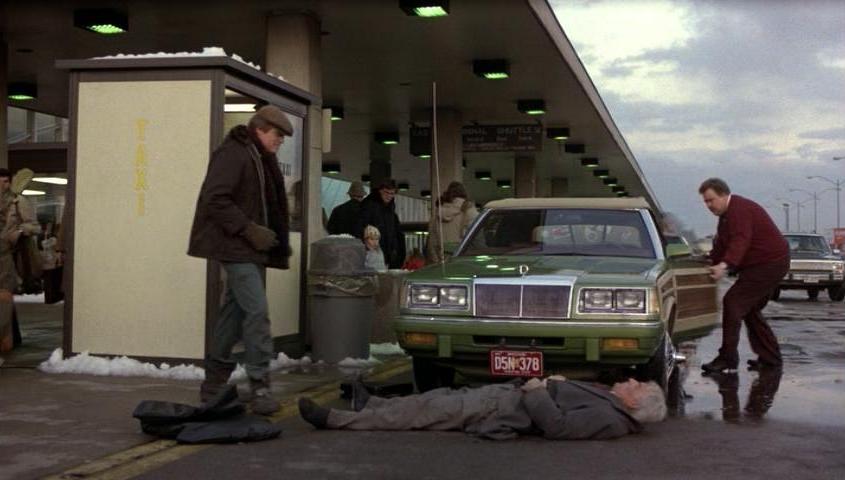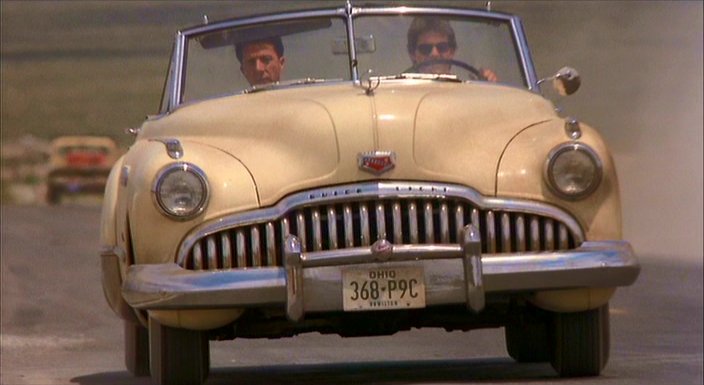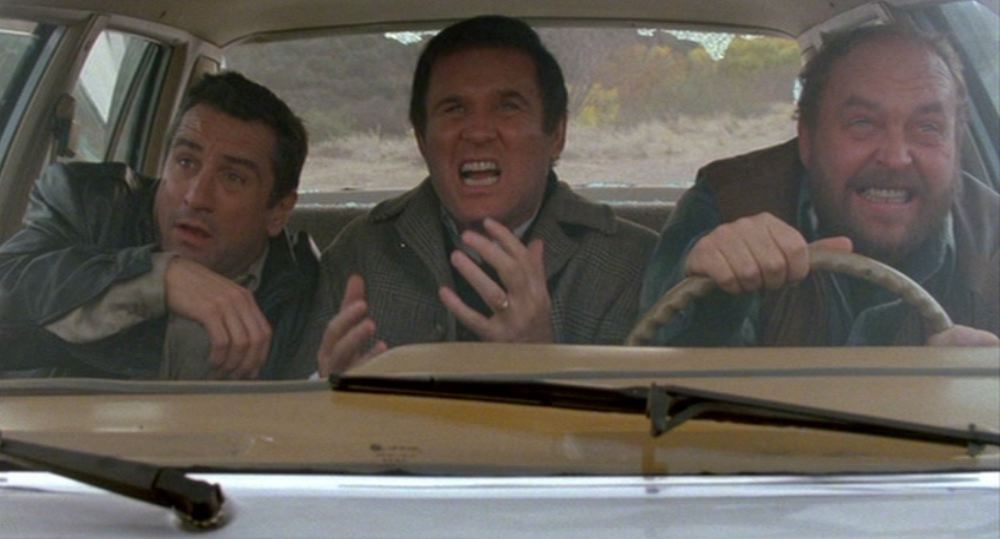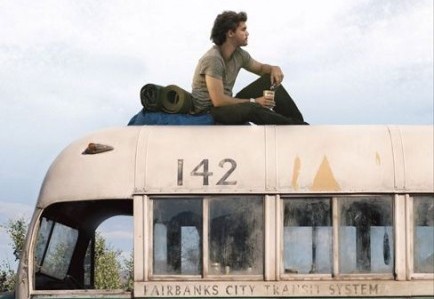When Hollywood Hits the Road: A Few Stand-Out Road-Trip Movies
- Written by
- Published in News
- font size decrease font size increase font size
- Be the first to comment!
 No matter what the destination or the vehicle that gets you there, there’s something almost mythic about the idea of the road trip. It seems like a kind of latter-day expression of the Spirit of the West, that quintessentially American impulse to break with custom and tradition and strike out for the frontier in search of new experiences. Of course, the open road can be a desolate place, lonely and maddeningly dull, but freeways aren’t freeways simply because there are no tolls. For me, the appeal of the road trip lies in its close association with a romantic ideal of freedom, maybe not the grand, capital-F variety (as in freedom from tyranny), but freedom from the problems, worries, and disappointments that can be like a permanent feature of our familiar environments. The road trip seems to promise that, by escaping our surroundings, we might also escape the rest of our lives, at least for a little while, until they catch up with us in Memphis, Chicago, Vancouver, or wherever else “the road takes us.” Which when you think about it is an apt way to describe the drawing power of the open road: we don’t take it the same way we take the car to the office or the kids to school, but it takes us, pulling us into its circuitry as if by some natural or vital force.
No matter what the destination or the vehicle that gets you there, there’s something almost mythic about the idea of the road trip. It seems like a kind of latter-day expression of the Spirit of the West, that quintessentially American impulse to break with custom and tradition and strike out for the frontier in search of new experiences. Of course, the open road can be a desolate place, lonely and maddeningly dull, but freeways aren’t freeways simply because there are no tolls. For me, the appeal of the road trip lies in its close association with a romantic ideal of freedom, maybe not the grand, capital-F variety (as in freedom from tyranny), but freedom from the problems, worries, and disappointments that can be like a permanent feature of our familiar environments. The road trip seems to promise that, by escaping our surroundings, we might also escape the rest of our lives, at least for a little while, until they catch up with us in Memphis, Chicago, Vancouver, or wherever else “the road takes us.” Which when you think about it is an apt way to describe the drawing power of the open road: we don’t take it the same way we take the car to the office or the kids to school, but it takes us, pulling us into its circuitry as if by some natural or vital force.
The enduring cultural fascination with the road trip has led to countless road-trip movies, which are as close as some of us will ever get to the experience. A lot of movies have what you might call road-trip elements – the difficult but fulfilling journey, the faithful vintage car, the travellers who by the end of it all come to learn important “life lessons,” etc. – but they’re not what you’d consider bona fide road-trip movies, which are practically a genre of their own. With a Hollywood adaptation of Kerouac’s On the Road due to roll into theatres next year, now seems like a good time to revisit a few of the classics. The movies listed below, ranked in no particular order, may not be the first that come to mind when you think of road-trip classics, but they’ve helped shape both the genre and – rightly or wrongly – what we’ve come to expect of the road-trip experience itself.
 Rain Man (1988)
Rain Man (1988)
Rain Man doesn’t show up on many classic-road-trip-movie lists: estranged fathers and sons and idiot card-counting savants don’t seem like the conventional stock-in-trade of the genre. But there’s no doubt Rain Man belongs. The entire movie revolves around a beautiful 1949 Buick Roadmaster convertible, complete with trademark VentiPorts and bucktoothed grille, that drives a father and son apart after a fateful joyride, only to reunite that son with his autistic brother after their father dies. As it turns out, the autistic brother (Dustin Hoffman) insists on being driven cross country when his younger brother (Tom Cruise) abducts him and tries to fly him back to the West Coast. What follows is a classic road trip full of beautiful twilight skylines, neurotic bickering, and seedy motels, culminating in one of the greatest Las Vegas sequences of all time.
Planes, Trains & Automobiles (1987)
As the title suggests, the trip at the centre of Planes, Trains & Automobiles isn’t limited to the road, though many of the movie’s most memorable scenes take place in or around the charred ruins of a 1986 Chrysler Lebaron Town and Country (hardly a thing of beauty under the best of circumstances, despite its uptown name). Most road-trip movies involve a breaking-away from the constraints of home, an escape from the monotonous rhythms and routines that make up the better part of our days; PT&A is concerned less with new frontiers than with the difficulty of the return journey. The movie’s comic tension is largely a result of the enclosed nature of the car, whose confines make for a compelling stage, especially when occupied by talented actors playing characters who want nothing to do with each other. Steve Martin is a tightly wound advertising exec desperate to get home to his family in time for Thanksgiving who finds himself blockaded inside a cheap rental with an obnoxious shower-curtain-ring salesman (John Candy). Without a doubt, one of the funniest (and most unexpectedly poignant) movies of its decade, and a true road-trip classic by any reckoning. Midnight Run (1988)
Midnight Run (1988)
For one reason or another, 1987-88 was a banner year for the road-trip genre. As with almost every movie on this list, the transnational road trip in Midnight Run derives a lot of its dramatic interest from the conflicting natures of the road-trippers, a grizzled bounty hunter (Robert De Niro) and his prisoner, a crooked but conscientious accountant and inveterate complainer (Charles Grodin) who is a marked man and wanted fugitive after embezzling millions of dollars from the mob. One of the great virtues of the road-trip movie is that the events of the plot are usually compressed into just a few days, which tends to create a natural unity and, in this case, a frantic headlong pace: De Niro has to race to get Grodin back to his bondsman alive and well while staying clear of the FBI, mob hitmen, and a rival bounty hunter.
About Schmidt (2002)
Of course, not all road-trip movies are fast moving. Take About Schmidt. To file it under the road-trip genre is almost to diminish its dramatic power. While the plot is framed around a retired accountant’s long trip from Nebraska to Colorado in a mammoth Winnebago Adventurer, it’s mainly a study of its central character, the titular Schmidt, played with unusual restraint and pathos by Jack Nicholson. A recent widower, Schmidt sets out to reconcile with his estranged daughter in the hope of justifying his largely uneventful existence. In the vastly overrated Easy Rider, Nicholson rode cross country as a young hell-raiser in search of altered states; here he’s a defeated ghost of a man desperate to rescue some shred of meaning from the debris of his life. It may be bleak, but it remains true to the abiding spirit of the road trip, which is not just about accumulating new experiences but also about reflecting on times past.
Motorcycle Diaries (2004)
The road-trip movie shares a common border with the buddy movie, and often crosses over into the same terrain. Motorcycle Diaries is a case in point. It dramatizes the four-month, 8,000 km road trip from Buenos Aires into the Peruvian Amazon that a young Ernesto “Che” Guevara, future guerilla and revolutionary martyr, embarked on in 1952 with his best friend on a squat, low-riding Norton Model 18. Their ultimate destination was a leper colony in Peru, where they worked with the sick and conducted research (Guevara was trained as a physician), but en route they visit seaside towns, rural villages, and Incan ruins in a journey that sheds interesting light on Guevara’s character before he became a T-shirt icon. Into the Wild (2007)
Into the Wild (2007)
Like Motorcycle Diaries, Into the Wild chronicles a real-life road trip: the trans-American journey of young Christopher “Alexander Supertramp” McCandless, memorably played by Emile Hirsch. After graduating college, McCandless shed his old life, turning his back on his self-destructive family and heading for Alaska in an effort “to kill the false being within” and find some kind of elemental truth in a return to nature. The journey is transformative, even though it ultimately costs McCandless dearly. If you’ve never been on a road trip before, this may be the best available substitute.
Broken Flowers (2005)
Broken Flowers may be the most interesting road-trip movie you’ve never seen. It came and went quietly on its theatrical release, but, like virtually all Jim Jarmusch films, has since acquired a fanatically devout cult following. In it, Bill Murray plays a wealthy one-time Lothario on the wrong side of fifty who one day receives an anonymous letter from an old flame informing him that years ago she bore him a son. At the insistence of his neighbour, Murray grudgingly sets out to track down the mother and meet his son. Like any good road trip, Broken Flowers is unpredictable and full of wrong turns; no matter how many times you watch it, you’ll never feel altogether sure what’s around the next corner.

